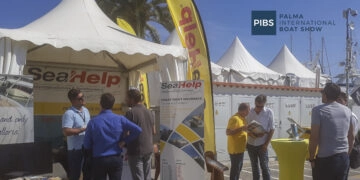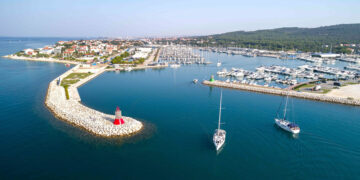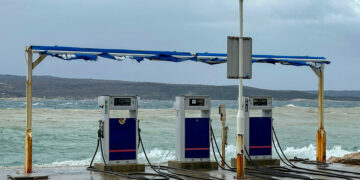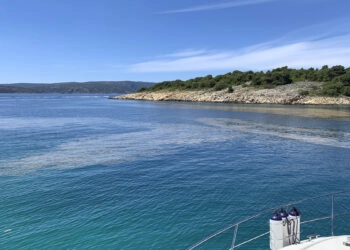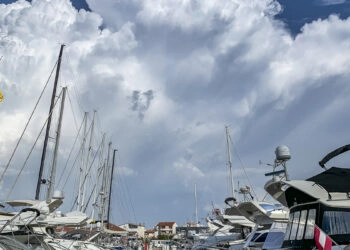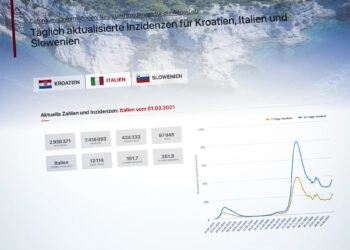The main interests of the owners of vessels located in the Adriatic Sea are probably some of the following: Can I currently still get to my vessel and how is it expected to be used during the summer months? Is it advisable to slowly start bringing the vessel out of its winter storage? Of course, SeaHelp cannot answer all these questions either. The status today (11.3.2020) is the following:
Italy
According to the Austrian automobile club ÖAMTC, persons entering Austria from Italy are currently required to present a health certificate, not older than four days, confirming that they have been tested negative for the Coronavirus. The ÖAMTC continued: “If no health certificate can be presented, Austrian citizens or persons who have a main or secondary residence in Austria may enter the country only, if they immediately enter a 14-day quarantine”. Under these conditions, the marinas in Italy are currently probably cut off from visitors from Austria. German citizens on their return journey from Italy can use Austria as a transit country if they leave the country without stopping. It is not possible to transit through Italy at the moment.
Slovenia
According to the Slovenian tourist office in Munich, there are only entry restrictions from Italy to Slovenia analogous to the Austrian measures. At the other border crossings, according to a spokesman, no special checks are currently carried out with regard to the Coronavirus; only people who are obviously ill are checked. As Slovenia does not currently regard neighbouring Croatia as a risk area for the spread of the Coronavirus, no further checks would be carried out at the Slovenian/Croatian border crossing points, which could currently lead to unusual disturbances in travel. In Slovenia 31 Coronavirus infections have been confirmed so far. Links in English can be found at the end of this article, they are updated daily.
Croatia
On the Croatian side, the situation is currently still somewhat more relaxed: 16 confirmed cases of Coronavirus infections are being treated there in isolation at present, the County of Istria has also cancelled all public, cultural and sporting events until 14 April, Italian citizens who want to enter Croatia can only do so after they have been quarantined for 14 days, as the German-language media portal HRT reports, citing sources close to the government. The closure of schools, kindergartens and universities is being considered.
In general:
As things stand at present, there is nothing to prevent entry from Austria to Croatia via Slovenia. However, it seems advisable to use the following links to obtain up-to-date information, as the situation can change constantly.
Current information about the Coronavirus
Austria:
ÖAMTC
Slovenia:
News page of the Slovenian Tourism Agency
Croatia:
German-speaking Croatian News Portal (HRT) “Voice of Croatia”
This article is an update to the already published article:
Coronavirus and travel law – first case in Croatia confirmed!
Statements of leading virologists
SeaHelp has contacted leading virologists to inquire whether a decrease in Coronavirus activity can be expected as temperatures rise. Here are the answers:
The Berlin virologist Christian Drosten (Charité Berlin) agreed with the following words: “…the dryness and UV-radiation make transmission events less frequent…!” In addition, the increased stay outside in spring and summer should reduce the possibility of infection. The German Society of Virology also agrees with this, at least to a certain extent, by pointing out the increased spread of conventional influenza viruses in the winter months, although this does not necessarily apply to the Coronavirus.
Statement press office of the Society of Virology based in Stuttgart:
“It is true that some virologists/infectiologists suspect that the incidence of infection might decrease with warmer temperatures. However, even among experts there are different opinions. The current estimates of the major epidemic control authorities should apply: It is not yet known whether weather and temperature will affect the spread of COVID-19. Some other viruses, such as the common cold and flu, spread more strongly in the cold months, but this does not mean that it is impossible to fall ill with these viruses in other months. It is currently not known whether the spread of COVID-19 decreases in warmer weather. There is much more to be learned about the transmissibility, severity and other characteristics associated with COVID-19, and research is ongoing.
Statement Press Office of the Robert Koch Institute based in Berlin:
Regarding the weather: Nothing is yet known about a possible seasonality of the new Coronavirus. It is possible that rising temperatures have a certain mitigating effect, but that is not the only factor influencing the spread. An exact temperature cannot be given.
Conclusion:
How the situation will develop in the future is something the leading virologists understandably did not want to commit themselves to. However, their statements and their own knowledge of the activity of the influenza viruses in winter at least suggest that the number of new infections could drop dramatically with the first rays of spring sunshine. SeaHelp will be keeping you up to date on this.



